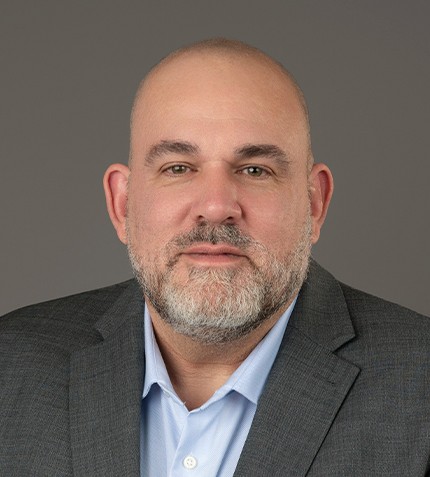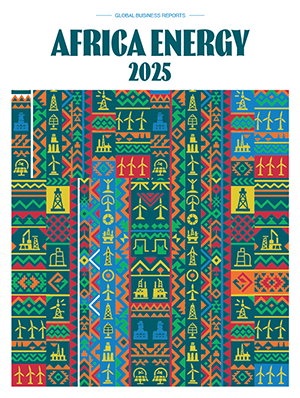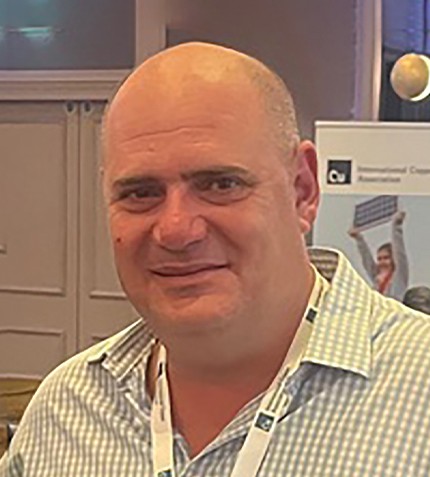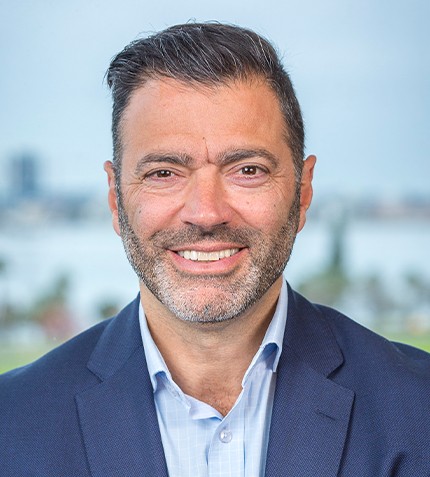
"The future lies with mid-sized companies and independent operators in mature African markets such as Gabon, Nigeria, and Angola."
RELATED PUBLICATION
ARTICLES FROM THIS PUBLICATION
Charles Lowery
COUNTRY MANAGER AND DIRECTOR, TEST ANGOLA
Could you introduce us to TEST Angola?
TEST Angola has been operating for over two decades. The company began with a single contract with Chevron, since growing into a key service provider specializing in instrumentation, electrical automation, and turbine maintenance. Measurement and analyzers, particularly oil flow allocation, represent core areas of expertise, while the company also engages in panel fabrication. We provide services to major IOCs, including Chevron, ExxonMobil, Sonangol, and Angola LNG. The company also supports the Cabinda refinery project. Our most significant and consistent client remains Chevron due to the maturity of their fields, which require ongoing maintenance and support—unlike newer FPSO-based operations that demand less service-intensive support. TEST operates an alliance agreement with Versatech. Versatech is the name of our US and Namibian entities, while the TEST brand is retained exclusively in Angola due to strong brand recognition.
Our workforce typically ranges between 250 and 300 employees, depending on project cycles. The company is concluding two significant projects, including the South N’dola platform for Chevron, where we handled instrumentation and electrical components. This is an important milestone, as fabrication of this kind had not been done in Angola since the 1970s. The return of fabrication work to the country is a positive development that should have been sustained historically.
The most significant project in the past year was the construction of the offshore platform, which involved up to 50 personnel. However, the most notable growth has been in the maintenance sector, in functions traditionally held by operators. We have employees embedded within client facilities in Luanda, handling roles previously managed internally.
What do you see as the main challenges for your business in the current market?
The foremost challenge remains the volatility of Brent crude prices. This volatility places pressure on investment flows, making capital allocation highly competitive. Paradoxically, the volume of tenders TEST Angola is bidding on is higher than ever. Despite the downturn in oil prices, this environment presents new opportunities for service providers—especially in mature markets like Angola—where outsourcing services has become more cost-effective than in-house execution by the IOCs.
How do you view the future of the Angolan oil market with independents and local operators?
Angola follows a trajectory similar to the US Gulf of Mexico and the North Sea. The future lies with mid-sized companies and independent operators in mature African markets such as Gabon, Nigeria, and Angola. Conversely, frontier markets like Namibia and Mozambique will continue to attract major IOCs. This evolution is already underway in Angola and Equatorial Guinea, where larger operators like ExxonMobil have divested. Independent and mid-sized operators bring agility and lower overhead and are often more focused on reliability and cost efficiency.
Can you discuss your presence and expectations for Namibia?
Namibia remains a long-term, greenfield opportunity. The regulatory environment is still evolving, and standards are in the early stages of development. With the involvement of Total, ExxonMobil and Chevron, the country is expected to align with a blend of European and American standards—though ultimately converging on API norms. There is no existing infrastructure, and production is still several years away. We plan to establish operations timed with the finalization of technical and safety standards to guide equipment decisions.
The green energy sector, particularly the Hyphen Hydrogen Energy initiative and the Kudu gas project, represents a compelling future focus. These projects have garnered international interest, including visits by high-level delegations such as the President of Finland. Namibia is well-positioned to model itself after Norway—a country that entered the oil sector relatively late but leveraged its timing to build a diversified and resilient economy.
How have you adapted to local content requirements?
TEST Angola has made substantial progress in local content compliance and workforce nationalization. Currently, only two expatriates are in management roles. The operations, human resources, and finance departments are all led by Angolan professionals. Following the 2015 market downturn, we capitalized on the opportunity to hire skilled Angolan engineers who had previously been inaccessible due to high demand from IOCs. This talent acquisition has significantly enhanced the company’s technical capabilities. TEST operates two training centers: one in Cabinda dedicated to internal workforce development and another as part of a broader corporate social responsibility effort, which offers one-year electrical apprenticeships.











